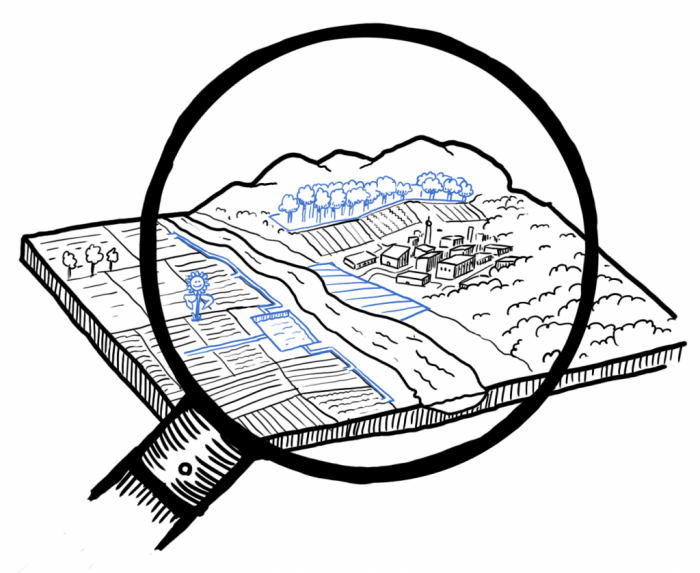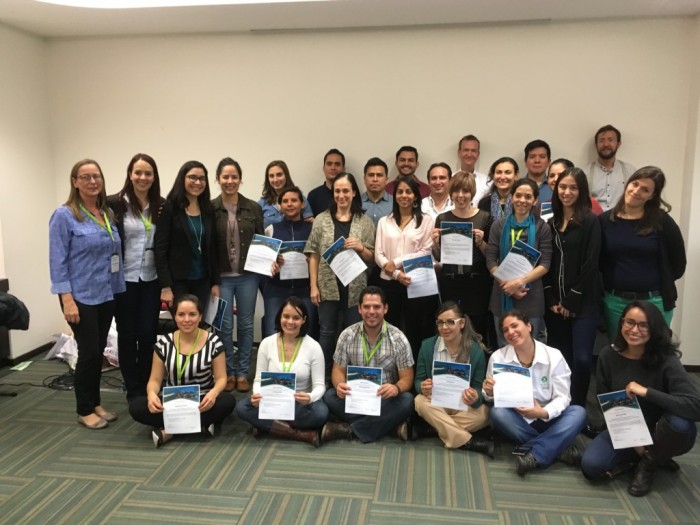Aimed at offering consultants, technicians, and government officials technical and practical tools needed to increase knowledge regarding mainstreaming the EbA approach, Training of Trainers Sessions were held as part of the course called Mainstreaming the EbA Approach in Development Planning. The training included four different modules: 1) Introduction and basic concepts; 2) Climate lens, vulnerability, and risk; 3) Options for adaptation and implementation; and 4) Monitoring and Evaluation (M&E). Based on these modules, the participants discussed the concepts and field application of the AbE approach. In addition, they acquired practical tools regarding active learning and group management, as well as reference materials, all of which may be used to reproduce the training for other groups and agencies. To that end, the participants had the opportunity to prepare their own 30 to 90 minute sessions where, besides developing their skills as facilitators, they were able to implement “active learning” activities. The training focused on the EbA mainstreaming cycle:
- Applying the Climate Lens: In this phase, the participants identified the main climate change impacts that can affect an ecosystem.
- Study Risk and Vulnerability: During the second phase, the participants identified the conditions needed to produce an impact chain.
- Identify Adaptation Options: Participants had the opportunity to analyze and select the adaptation measures that could reduce the vulnerability or exposure of the system which they studied.
- Prioritize and Select Adaptation Measures: After recognizing the limitations for implementing adaptation measures, the participants performed a multi-criteria analysis for prioritizing measures.
- Implementation: This phase refers to the strategy or plans for implementing adaptation policies or measures. To that end, the participants made a review of the ecosystems, ecosystem services, and their current condition.
- Evaluation: During this final phase, the participants defined the frame of reference for monitoring the adaptation measures.

In order to create a broader perspective regarding mainstreaming AbE-focused development planning, the case of the Itza-Popo National Park was studied. This case study enabled the participants to apply and reflect on adaptation-related concepts and thereafter perform a general analysis regarding the primary ecosystem services provided by the states that make up this park. The case study was fundamentally important for putting into practice the first phase of mainstreaming the AbE approach. Based thereon, the participants were able to analyze how the development objectives of different sectors – specifically the agriculture and tourism sector – can be affected by climate impacts on the region.
The training took place on October 17-20, 2017 in Mexico City, and it was provided by the Deutsche Gesellschaft für Internationale Zusammenarbeit (GIZ) GmbH on behalf of the German Federal Ministry for the Environment, Nature Conservation, Building and Nuclear Safety (BMUB) and in collaboration with the Mexican Ministry of Environment and Natural Resources (SEMARNAT), the Mexican Institute of Ecology and Climate Change (INECC), and the Mexcican National Commission of Natural Protected Areas (CONANP).

